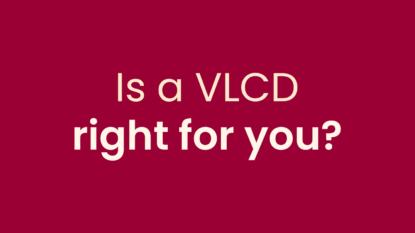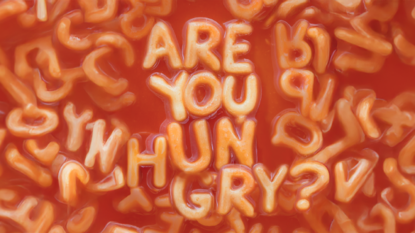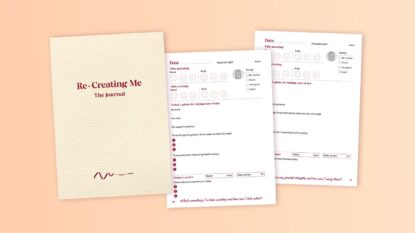Getting to Grips with a Very Low Calorie Diet (VLCD)
A very low calorie diet programme offers you the chance to reset your lifestyle by helping you effectively lose weight. On first glance, you may have read that this approach could present some challenges so here we look at the physical, emotional, and social changes that you may face when following a VLCD and share some practical tips to help manage them. If you wish to learn more about our diet plan itself, please visit our what is a VLCD diet plan page.
Understanding a Very Low-Calorie Diet
A very low calorie diet means you consume far fewer calories than you would usually in order to help you lose weight. Research shows that this type of plan is ideal for helping build solid foundations upon which to start forming healthy, new routines. As with any major dietary change, adjusting to a VLCD may present some challenges so it is important to know what to expect because being forewarned of any potential issues, can help you prepare for and manage them effectively.
Physical Challenges
Some may experience changes in energy levels and initially feel ‘a little off’ when starting a VLCD and these are described in more detail here. But the good news is that most of these are generally very short-lived, and are also a clear sign that your body is adjusting to this new metabolic state of ‘fat-burning’ meaning you are well on you way to achieving your new, healthier body.
Emotional Challenges
Comfort eating, one of the classic labels given to emotional eating, can be generally identified by your cravings for ‘comfort foods’ (carbohydrates and to some extent, fatty, and rich foods). This happens in times of stress but especially when you’re feeling upset, down, or are just overwhelmed with day to day living. A complicated set of chemical changes within our bodies in response to these emotionally challenging feelings is what underlies these cravings and eating those ‘rewarding foods’ can activate reward centres in our brains, leading to feelings of pleasure and satisfaction. However, paradoxically comfort foods can often at times be referred to as ‘discomfort foods’ due to their potential to contribute towards greater physical and emotional challenges down the line. To change your relationship with food, you need to understand more about the ‘whats’ and the ‘whys’ and how to control these cravings before they start to control you.
Changing your calorie intake can also bring about emotional changes including.
- Mood Fluctuations: You may feel more emotional on certain days which is a perfectly normal reaction to a new routine.
- Frustration and Disappointment: Some may feel frustrated if the weight loss does not seem to progress as expected. It is important to be patient and keep a record of small wins and know that you absolutely will lose weight in a healthy and rapid way when you are following a VLCD.
- Feelings of Isolation: When you alter your routine, you may feel disconnected from friends or family who are eating differently. Sharing your experience with someone who understands can be very helpful.
A practical tip to manage these feelings is to keep a journal. Write down your thoughts and track your progress and over time, this record will show just how far you have come, even if the changes seem small at first.
Social and Lifestyle Challenges
Adopting a very low calorie diet will impact your social life to some extent and you may find that certain events or gatherings can feel a little more challenging. Consider these common issues:
- Social Events: Where food is a central theme and there’s no getting away from it, you may feel a little out of place whilst you are abstaining from conventional food. Explaining your plan to friends and family may help ease this pressure.
- Family Meet-ups: Group meals can sometimes be a source of stress and so where you can, plan ahead and suggest activities that do not revolve solely around eating.
- Lifestyle Adjustments: The change in routine may affect your daily habits and it may be wise to re-arrange your schedule to include more rest or light activity.
- Perceived Restrictions: The diet may seem to limit your freedom in social settings but over time, as you adjust, you will find new ways to enjoy these occasions whilst keeping to your plan.
A helpful approach is to plan your day with a variety of activities. Find hobbies or exercises that distract your mind from the challenges of the diet. This strategy can also provide a sense of balance.
Practical Ways to Overcome the Challenges
It is possible to manage the difficulties of a very low-calorie diet with simple steps. Here are some practical tips:
- Seek Professional Guidance: Regular check-ins with your mentor will help you stay on track. Their advice can ensure that you are managing your energy levels and emotional health effectively.
- Set Clear, Achievable Goals: Write down small, realistic targets. For example, focus on gradual improvements in energy and mood. These goals can motivate you on days when progress seems slow.
- Keep a Detailed Record: A diary or journal can be a valuable tool. Write down how you feel each day and note any improvements. This record helps you to see positive changes, even if they come slowly.
- Build a Support Network: Share your journey with a friend and join a group with similar goals. Support from others who understand your situation can provide comfort and encouragement and LighterLife groups are perfect for helping with this.
- Allow Time for Adjustment: Understand that the body and mind need time to adapt. Give yourself space to grow into the new routine.
- Celebrate Small Wins: Recognise any progress, no matter how small. Each positive step adds to your overall success.
These steps can make the journey less challenging. You can manage the changes more smoothly by taking small, consistent actions.
Real-Life Experience
Many people have taken a very low-calorie diet and have shared their experiences. For instance, Sarah, aged 55, said:
“I felt low on energy at first. There were days when I questioned my decision. With steady advice and support from my group, I found that I could manage my feelings and gradually improve my energy. I now see the value in my progress, however small it may be.”
Stories like Sarah’s show that even when faced with challenges, a well-planned approach can help you overcome the hurdles. These experiences remind us that change takes time and that support is key.
Where to Find More Information
If you are considering a very low-calorie diet or have already started your journey, it is useful to learn more about the plan. Our website offers detailed advice on the diet. Please visit our page on what a VLCD diet plan is for further details. This page offers additional information and guidance to support your weight loss journey.
Final Thoughts
With a clear plan, the right support, and practical strategies, you can manage any challenges you may encounter. Every journey is unique, and rest assured that with time, your body and mind will adjust to a new way of living. By planning ahead and seeking advice when needed, you can navigate these changes effectively.





